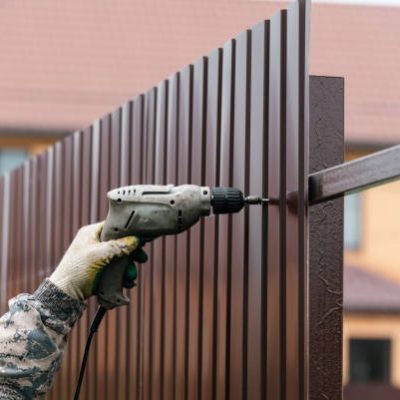In the bustling world of home improvement, renovations, and construction, timely project completion can make or break a venture. Whether you’re a homeowner looking to revamp your living space or a business owner embarking on a large-scale project, working effectively with contractors is key to your project’s success. Let’s walk into some practical tips and strategies to ensure a smooth and timely completion of your projects.
1. Set Clear Expectations from the Start
One of the most crucial aspects of working with contractors is establishing clear expectations upfront. This involves not just the tasks to be completed but also the timeline, budget, and quality standards. Clearly define the scope of work and ensure that all parties are on the same page. This will prevent miscommunications and disagreements down the line.
Develop a Detailed Project Plan
A detailed project plan serves as a roadmap for the entire duration of the project. It should outline every step and specify who is responsible for what. Break down the project into manageable sections, which will help in tracking progress and ensuring all activities are aligned with the timeline. A good construction project plan will list the following:
-
Tasks and milestones
-
Deadlines
-
Assigned personnel
-
Resources needed
-
Potential risks and mitigation plans
2. Effective Communication is Key
Effective communication is often the differentiator between success and failure in project management. Regular meetings, updates, and open channels of communication make all the difference. Discuss potential issues or concerns with your contractor early on. It can be as simple as a weekly video call check-in or using a project management tool that keeps everyone informed.
Use Technology to Your Advantage
Thanks to technology, it’s easier than ever to keep everyone informed and updated. From project management software to simple messaging apps, technology provides a slew of options to improve communication. Utilize these tools to track deadlines, post updates, and share documents.
3. Choose the Right Contractor for the Job
Finding the right contractor can mean the difference between a successful project and a disaster. Take your time when selecting a contractor by evaluating their past work, checking references, and ensuring they have the required licenses and insurance.
Conduct Thorough Interviews
Before settling on a contractor, conduct detailed interviews to get a sense of their work style and reliability. Feel free to ask questions about their previous projects, the challenges they faced, and how they overcame them. Doing so will give you greater insights into their capabilities and suitability for your project.
4. Monitor Progress Closely
Once your project is underway, it’s essential to monitor its progress closely. Review completed work regularly against the milestones listed in your project plan. If things start to veer off course, address the issue immediately rather than waiting for it to escalate.
Conduct Regular Site Visits
There’s no substitute for seeing the work firsthand. During site visits, you can verify that the work aligns with your plans and that the quality levels meet your expectations. It also shows your contractor that you’re engaged and aware of what’s happening, possibly leading to improved work quality and speed.
5. Expect and Plan for the Unexpected
Even with the best-laid plans, unforeseen challenges can and will arise. Weather, supply chain issues, and even personal emergencies can delay progress. When creating your project plan, include contingencies for these types of disruptions. Having a buffer will ensure minimal impact on your overall project timeline and budget.
Use Quality Materials
While it’s tempting to cut costs wherever possible, sometimes you get what you pay for. Opting for quality materials can save you from costly repairs and delays in the long run. Discuss various material options with your contractor to find the best balance between quality and cost.
6. Handle Payments Wisely
Managing funds is another big hurdle in completing a project on time. It’s crucial to set up a payment schedule that aligns with project milestones. This way, you’re not paying too much upfront and leaving room for flexibility should any issues arise.
Set Payment Milestones
Avoid paying full costs upfront. Instead, devise a payment schedule that aligns with project milestones. This approach not only ties payments to tangible results but also motivates your contractor to stick to the planned schedule.
7. Define a Feedback Mechanism
Feedback can be an effective tool for both you and your contractors. Encourage open dialogue to discuss what’s working well and what could be improved. Regular feedback meetings can boost morale, resolve small issues before they develop into larger problems, and keep the project on track.
Be Open to Suggestions
Landscaping contractors often have a wealth of experiences and insights to offer. Be open to their suggestions for better methods, materials, or even design changes that can enhance your project and make it more efficient.
8. Quality Is Non-Negotiable
No matter how pressing the deadlines may seem, never compromise on quality. A low-quality result can lead to future headaches and additional costs. Insist on frequent quality checks and do not hesitate to address any issues before moving on to the next phase.
Understand the Cost of High Standards
Setting high standards may incur higher costs upfront, but skimping on quality can result in rework and additional expenses. Choose to work with contractors who understand and appreciate your quality standards.
9. Foster a Collaborative Environment
Creating a collaborative environment fosters mutual respect and often leads to better project outcomes. When contractors and clients work together, the result is usually a project completed on time and to everyone’s satisfaction.
Share the Project Vision
Communicate your vision clearly to the contractors involved. Understanding the larger picture will motivate them beyond just completing tasks. This shared vision can create a more cohesive effort to achieve project goals, making it easier to incorporate elements like LED landscape lighting that add aesthetic appeal.
10. Value Professional Expertise
Contractors bring invaluable expertise that should be respected and utilized. They know the ins and outs of their trade, from building codes to efficient techniques. Trust their expertise and judgment to complete specific tasks effectively.
Utilize Professional Networks
Contractors’ professional networks can also be a resource for you. Their relationships with suppliers can often lead to better pricing and priority service, which are important for sticking to your timeline and budget.
11. Celebrate the Achievements
Once the project wraps up, take time to acknowledge the hard work everyone’s put in. Celebrating the completion of the project not only boosts morale but also cements your relationship with the contractors for any future projects.
Positive Reinforcement
Providing positive reinforcement can go a long way in ensuring long-lasting relationships. A simple thank you, or a small celebration can show appreciation for a job well done, motivating everyone involved to bring the same energy to new projects.
Always remember that collaborating effectively with your contractors can transform your vision into reality almost as seamlessly as if you were dealing with the best stone landscaping company. So get started, keep these tips in mind, and watch your projects thrive.
Final Thoughts
There you have it! Armed with these strategies, you’re well on your way to completing your projects in a timely and successful manner. By setting clear expectations, maintaining open communication, and valuing professional expertise, you’ll foster an environment conducive to achieving your project goals.




